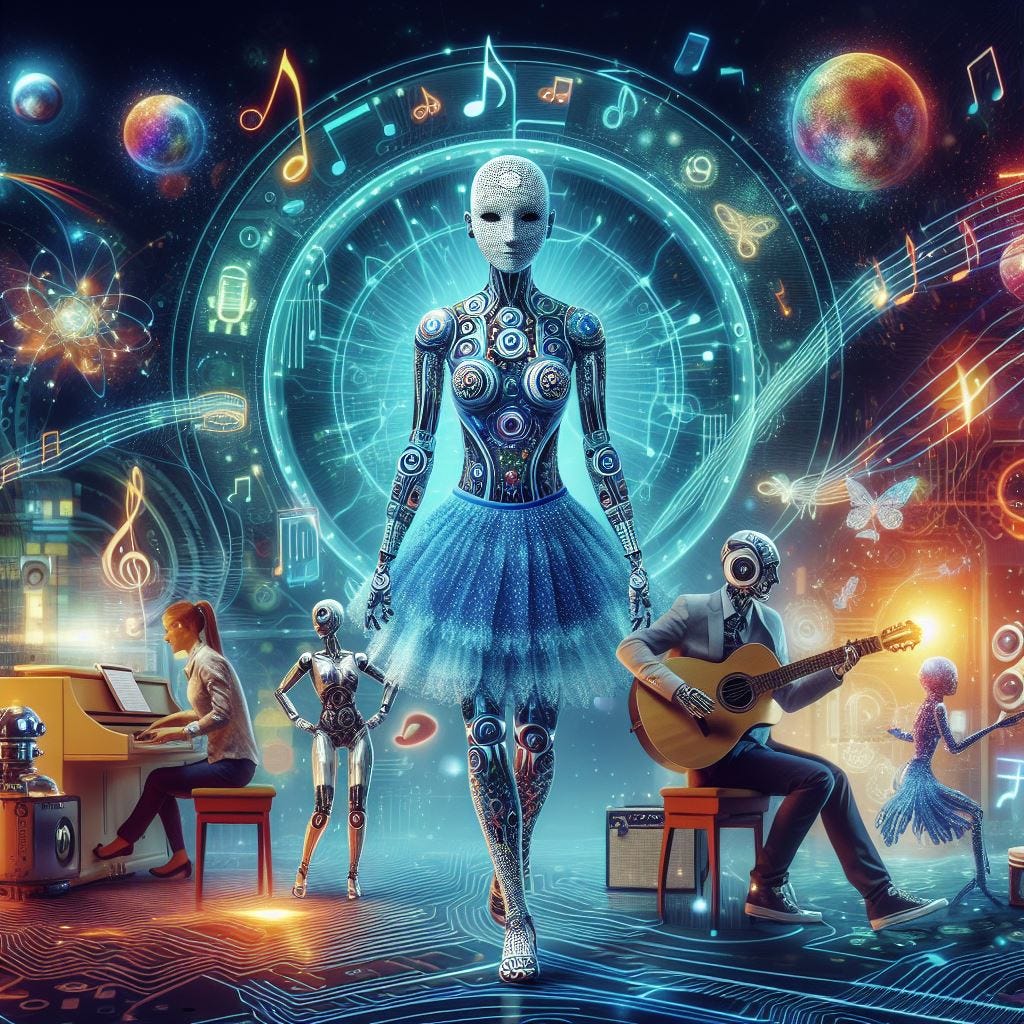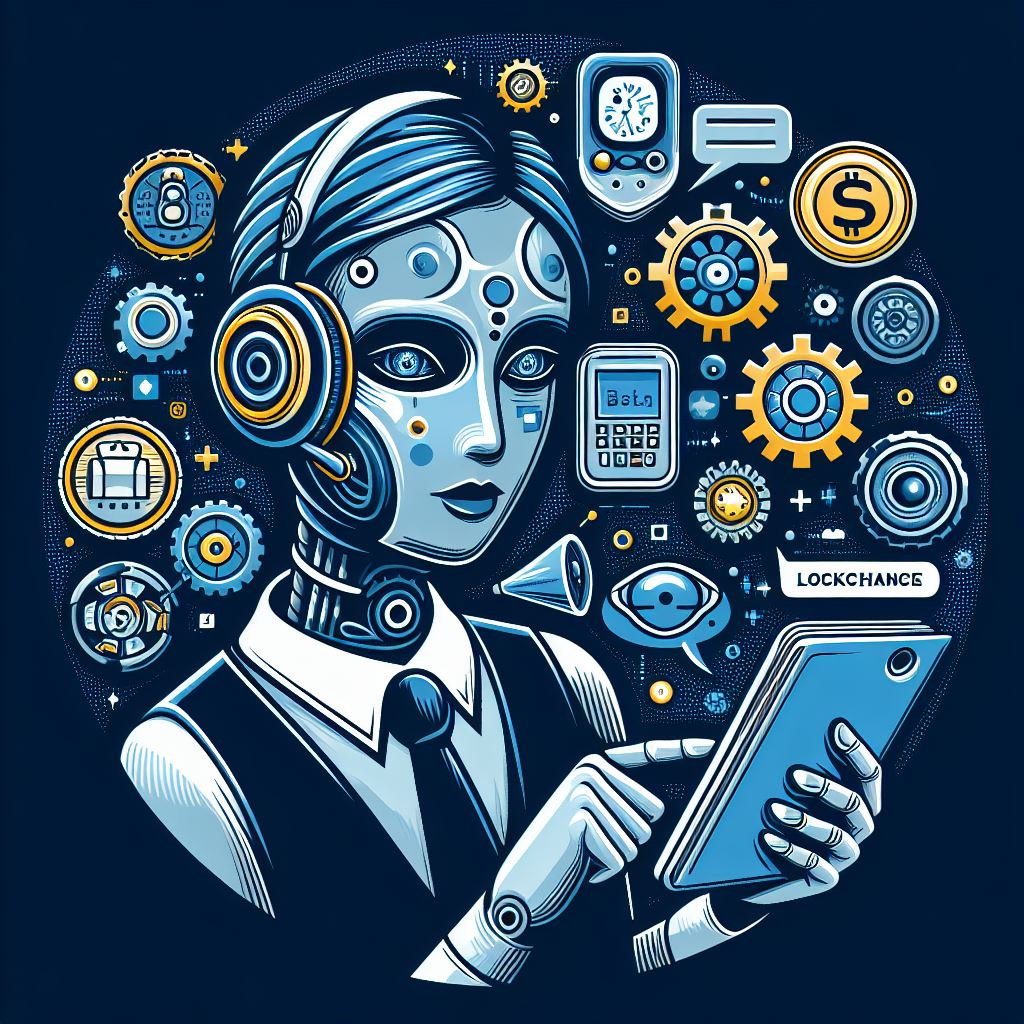AI Revolutionizes Creative Industries - Music, Fashion, Animation Transformed by Generative Tech and Personalization
Generative Models and Computer Vision Usher in New Era of Innovation, Concerns
Animating the Static: New AI Tool Brings Images to Life
- New AI tool called Animate Anyone creates videos from single images using altered versions
- Developed by Alibaba researchers; mimics art styles from realism to anime
- Showcased on model, anime characters, TikTok dancer with impressive fluidity
- Useful for game developers, animators, content creators
- Raises concerns around copyright, privacy with emergent AI tech
- If used judiciously as supplemental tool, has invaluable potential
AI's Double-Edged Sword for Music's Future
- AI music generators autonomously produce tracks via machine learning
- Expedites composition but raises questions around creativity, job loss
- Can also spark human inspiration and new ideas
- AI optimizes music promotion campaigns, identifies target audiences
- But risks homogenized sound lacking diversity
- Flawed data also jeopardizes messaging effectiveness
- Balance key: Utilize AI assistance while retaining human originality
AI Reshapes Fashion's Design and Personalization
- Generative AI transforms fashion design, illustrated by stylist Opé M
- $150B additional fashion revenue expected from AI per McKinsey
- Virtual try-on tech analyzes skin, depicts makeup realistically via AI
- Helps brands like Estee Lauder, also allows experimenting with hairstyles
- Skincare firm Revea diagnoses skin with spatial imaging, neural networks
- Insights inform custom skincare formulations for improvement
- AI-powered personalization and creativity accelerating fashion's digital shift
Animating the Static: New AI Tool Brings Images to Life could put TikTok influencers out of a job
A new artificial intelligence tool called Animate Anyone can generate emotive videos from a single static image. Unveiled in a study by Alibaba researchers, the AI scans an image and simulates movement by creating slightly altered versions, producing remarkable fluidity in transitions. It can mimic various art styles from realism to anime. The team showcased the tool’s potential by animating a posing model, dynamic anime characters, and a TikTok dancer. While not yet perfect, Animate Anyone demonstrates exciting new possibilities for game developers, animators, and content creators. However, like many emergent AI technologies, it also raises concerns around copyright, privacy, and creativity. If implemented conscientiously as a supplemental tool rather than replacement for human imagination, Animate Anyone could prove invaluable. For now, it remains in early development with no set release, sparing the careers of TikTok influencers – for the time being.
Tracking AI's Origins with Blockchain
A16z crypto researchers believe blockchain technology could help track the origins of AI-generated content. In a recent post, Stanford professor Andrew Hall said decentralized crypto networks can serve as a "counterbalancing force" to centralized AI dominated by a few tech giants. He suggests crypto can enable permissionless contribution from anyone. Hall admits questions remain about decentralizing generative AI for democratic governance. But he believes blockchain can eventually lower costs and increase accessibility of AI products. With concerns around AI's existential threat potential on the rise, crypto may open AI's "black box" by logging its history on tamper-proof ledgers. This could make AI safer while avoiding concentrated power. Though still conceptual, using crypto to decentralize AI could be one of blockchain’s key future use cases.
Wishpond Files Patent for Conversational AI Sales Assistant
Vancouver-based online marketing company Wishpond Technologies has filed a utility patent for an AI-powered virtual sales representative called SalesCloser AI. Leveraging advanced natural language processing and deep learning, SalesCloser AI can conduct personalized and interactive product demos, sales calls, and presentations in real time over video chat platforms. It customizes pitches using visual aids to match prospects' needs and preferences. At its core is an adaptable state machine controller that oversees different presentation threads, enabling coherent, delay-free interactions.
Wishpond CEO Ali Tajskandar states this Virtual AI Representative technology will drive the company's upcoming SalesCloser AI launch. He believes AI is revolutionizing marketing and sales, necessitating innovative solutions. The patent application shields Wishpond's IP as a first mover in conversational AI for customer engagement. Beyond sales, Tajskandar foresees applications in market research, education, healthcare, and more. Early tests show promise in delivering consistent, scalable services that human representatives struggle to match. Though AI prompts reasonable concerns, thoughtful implementation in supplementing human creativity promises new efficiencies in connecting businesses and customers.
AI Reshapes Fashion's Design and Personalization
Generative AI is transforming fashion design while computer vision and augmented reality provide custom skincare regimens. When fashion stylist Opé M began experimenting with AI art platforms Dall-E and Midjourney to illustrate designs, she uncovered new creative avenues. Opé entered an AI fashion competition, placed third, and sold out her edited AI collections with brand Revolve. Though facing criticism for using AI, Opé views it as an assistant rather than replacement. AI promises $150 billion additional fashion revenue in coming years per McKinsey. Beyond design, Perfect Corp.'s virtual try-on tech analyzes skin and realistically depicts makeup using face tracking and AI rendering. Allowing digital experimentation, this helps brands like Estee Lauder. Perfect's hair styler also harnesses generative AI to mimic styles. Meanwhile, skincare firm Revea scans and diagnoses consumers' skin via spatial imaging and neural networks. The biological insights then inform custom formulations to improve skin. With technology progressing, AI-powered personalization and creativity will continue accelerating fashion's digital transformation.







